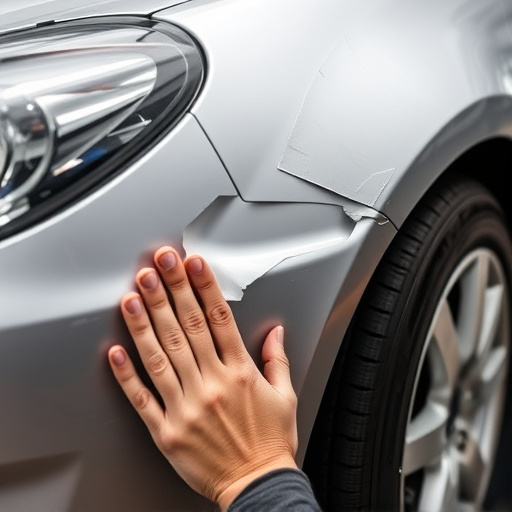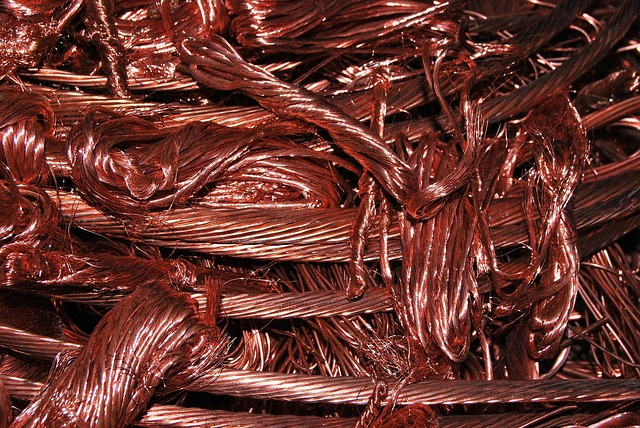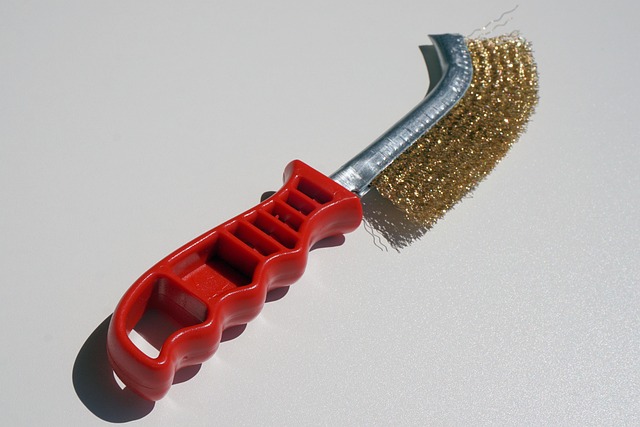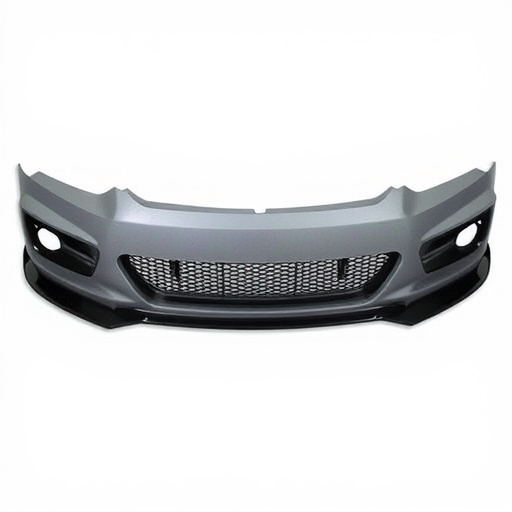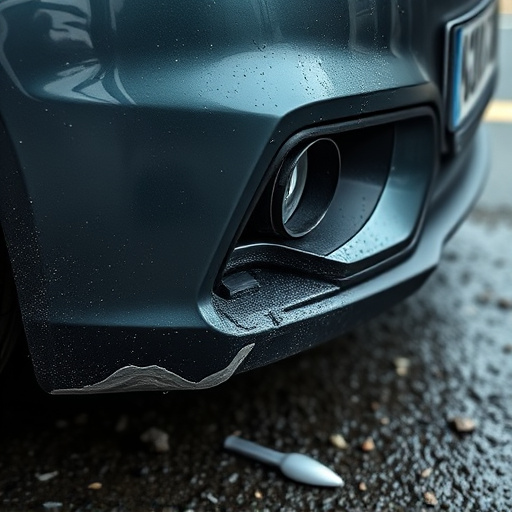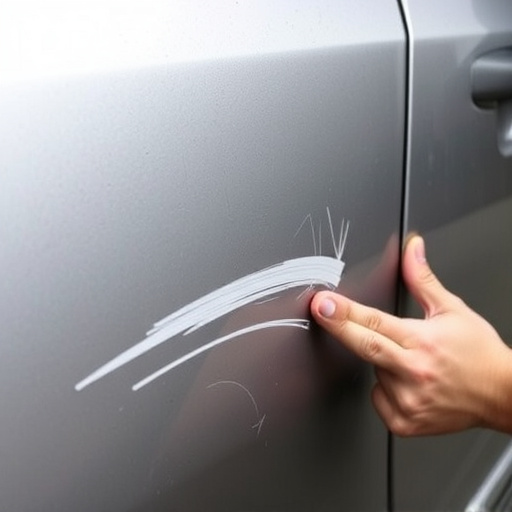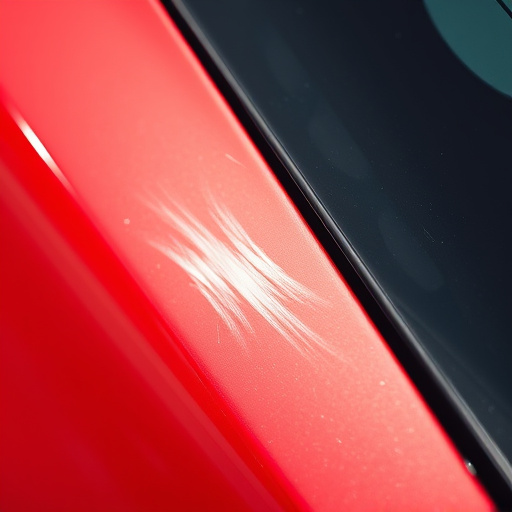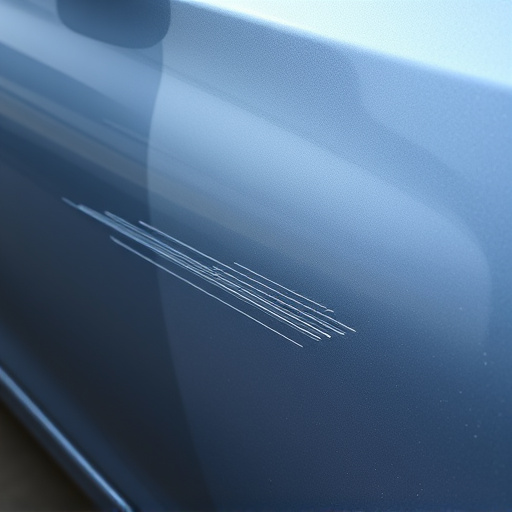Recycled parts collision repair is a pioneering and sustainable approach that reduces ecological footprint, minimizes automotive waste, and lowers carbon emissions by using repurposed materials for various repairs. This method extends vehicle lifespans, aligns with global circular economy efforts, and promotes efficiency in the auto body industry, making shops key contributors to combating climate change.
Recycled parts collision repair is a game-changer in the automotive industry, offering a sustainable solution with significant environmental impact. This practice not only reduces waste but also lowers carbon emissions by utilizing existing materials, minimizing the need for new resource extraction and energy-intensive manufacturing processes. In this article, we explore how recycled parts play a pivotal role in cutting down our carbon footprint, focusing on the benefits, the importance of collision repairers’ involvement, and the path forward for eco-friendly repairs.
- Recycled Parts: A Sustainable Collision Repair Solution
- Environmental Benefits of Using Recycled Materials
- The Role of Collision Repairers in Reducing Carbon Emissions
Recycled Parts: A Sustainable Collision Repair Solution
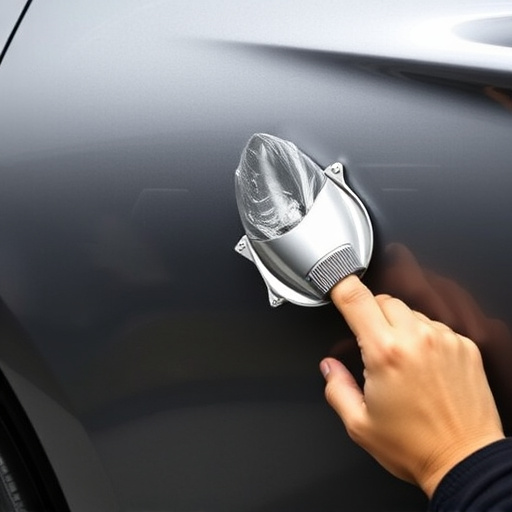
The use of recycled parts in collision repair is a game-changer when it comes to sustainability. By incorporating reclaimed materials into their work, collision repair shops can significantly reduce their environmental impact. Recycled parts offer an eco-friendly alternative to new components, minimizing waste and lowering carbon emissions associated with manufacturing processes. This innovative approach to fender repair and dent removal not only benefits the planet but also contributes to a circular economy.
These shops are embracing a more holistic view of collision repair by considering the entire lifecycle of vehicles. Instead of solely focusing on quick fixes, they prioritize long-term solutions that extend vehicle lifespans and minimize resource depletion. By using recycled parts for various repairs, from minor dents to major body work, these establishments demonstrate their commitment to sustainability without compromising quality or safety standards.
Environmental Benefits of Using Recycled Materials

Using recycled parts in collision repair offers a host of environmental benefits. By incorporating repurposed materials into vehicle bodywork repair, such as dent removal or car damage repair processes, we significantly reduce the demand for new raw resources like metal and plastic. This decrease in resource extraction lessens the energy consumption and greenhouse gas emissions associated with manufacturing virgin products.
Moreover, recycled parts collision repair contributes to minimizing landfill waste by giving damaged components a second life. Instead of ending up as scrap, materials are salvaged and remanufactured, extending their lifespan and diverting them from potentially harmful disposal methods. This sustainable approach aligns with the global push for a circular economy, where resources are kept in use for as long as possible, thereby lowering our collective carbon footprint.
The Role of Collision Repairers in Reducing Carbon Emissions
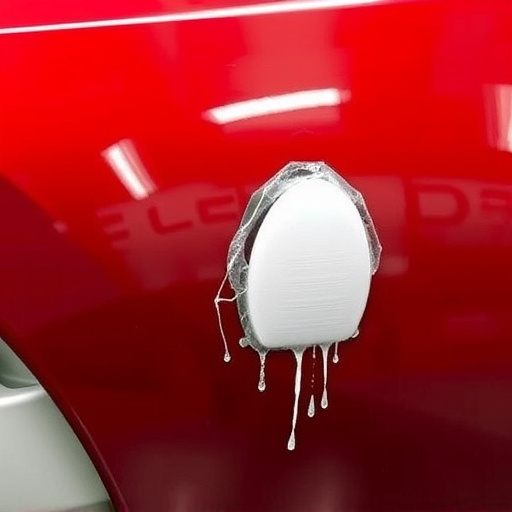
Collision repairers play a pivotal role in reducing carbon emissions through their adoption of eco-friendly practices, particularly by utilizing recycled parts collision repair methods. In an industry that traditionally relies heavily on resource-intensive manufacturing processes, these professionals are leading the charge towards sustainability. By incorporating recycled materials into auto body repair and car dent repair processes, they significantly cut down on energy consumption and waste generation.
This shift towards green practices not only benefits the environment but also contributes to a more efficient automotive industry. Auto body shops that embrace recycled parts collision repair become key players in the global effort to combat climate change. They demonstrate that even within specialized trades, simple changes can yield substantial results, fostering a more sustainable future for all.
Recycled parts collision repair is not just a trend; it’s a necessary step towards a greener future. By embracing this sustainable solution, collision repairers can significantly reduce their carbon footprint and contribute to a healthier environment. The environmental benefits are clear: lower emissions, less waste, and conserved natural resources. As we navigate the challenges of climate change, the role of collision repairers in promoting eco-friendly practices cannot be overstated. Adopting recycled parts is a powerful way to make a difference, ensuring a cleaner, more sustainable world for generations to come.

